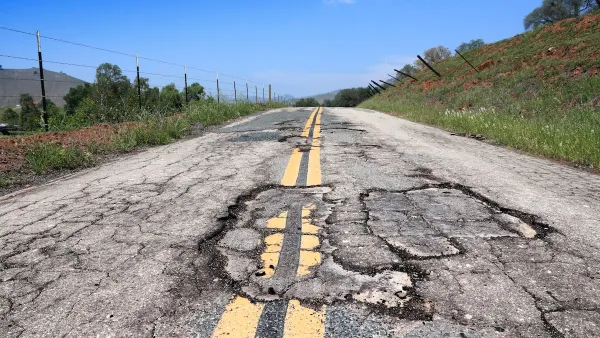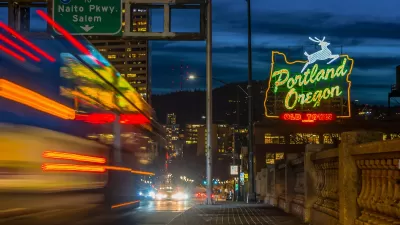In a survey by the National League of Cities, local leaders overwhelmingly cited a lack of funding as a top factor affecting infrastructure decisions.

According to a press release from the National League of Cities, "91% of cities, towns and villages surveyed identified that insufficient funding for infrastructure is a top priority," citing a lack of funding as a top factor for infrastructure decisions. "Local governments have led the way on infrastructure for decades," says Kathy Maness, president of the National League of Cities and a councilmember in Lexington, South Carolina. "It is well beyond time to rebuild our nation’s roads, water systems, broadband and workforce. Our communities can’t keep doing it alone."
The NLC surveyed 596 local leaders to identify "top factors impacting their infrastructure decision-making." Other major factors cited by survey respondents include "lack of pre-development funds (56%), essential services (31%) and hiring workers skilled for infrastructure (27%)." Respondents "also identified the need for making infrastructure decisions through an equity lens—with nearly 20% of those surveyed identifying equity as a top factor in their decision making."
According to National League of Cities First Vice President and Mayor of Union City Georgia Vince Williams, "The needs of America’s communities, families and workers are simply not being met by the current level of funding and support from the federal government on this critical issue." The Kinder Institute for Urban Research at Rice University estimates "$660 billion in local infrastructure needs," a number that "far exceeds city resources."
FULL STORY: 91% of Cities Say Insufficient Funding Delaying Critical Infrastructure Investments

Planetizen Federal Action Tracker
A weekly monitor of how Trump’s orders and actions are impacting planners and planning in America.

Maui's Vacation Rental Debate Turns Ugly
Verbal attacks, misinformation campaigns and fistfights plague a high-stakes debate to convert thousands of vacation rentals into long-term housing.

San Francisco Suspends Traffic Calming Amidst Record Deaths
Citing “a challenging fiscal landscape,” the city will cease the program on the heels of 42 traffic deaths, including 24 pedestrians.

Trump Prompts Restructuring of Transportation Research Board in “Unprecedented Overreach”
The TRB has eliminated more than half of its committees including those focused on climate, equity, and cities.

Amtrak Rolls Out New Orleans to Alabama “Mardi Gras” Train
The new service will operate morning and evening departures between Mobile and New Orleans.

The Subversive Car-Free Guide to Trump's Great American Road Trip
Car-free ways to access Chicagoland’s best tourist attractions.
Urban Design for Planners 1: Software Tools
This six-course series explores essential urban design concepts using open source software and equips planners with the tools they need to participate fully in the urban design process.
Planning for Universal Design
Learn the tools for implementing Universal Design in planning regulations.
Heyer Gruel & Associates PA
JM Goldson LLC
Custer County Colorado
City of Camden Redevelopment Agency
City of Astoria
Transportation Research & Education Center (TREC) at Portland State University
Jefferson Parish Government
Camden Redevelopment Agency
City of Claremont





























